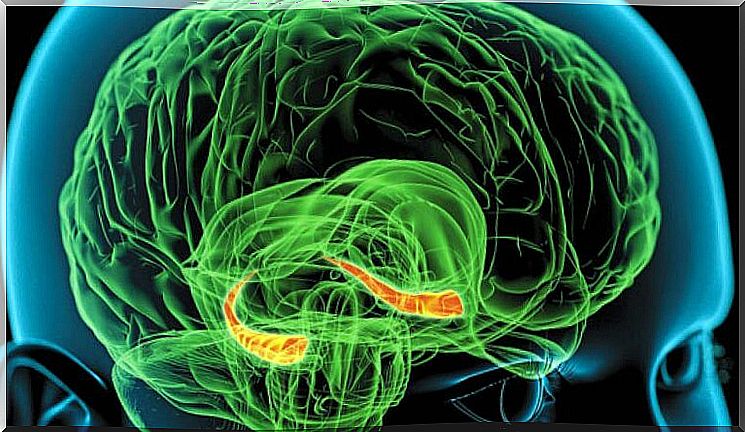What Makes Us Remember Dreams Or Forget About Them?

We spend almost a third of our lives sleeping. However, we do not always realize what happens in this most dreamlike, strange, fascinating and surreal universe where revealing meanings emerge. Why does it happen? Why are we sometimes unable to remember dreams?
Salvador Dali said that the fact that people did not understand the meaning of his art did not mean that he did not have one. A large part of the works of this unforgettable painter, sculptor, draftsman and set designer were nourished by the world of dreams. Dali was a navigator, an expert in lucid dreams that he provoked in himself during his naps.
Unfortunately, the majority of the population does not have this ability. That is, the percentage of people who can remember the content of a dream is much lower compared to those who are left with an impression, a sensation, a disorganized and almost meaningless set of images.
This reality, which for many individuals can be frustrating, has several explanations that we will clarify below.

Why is it sometimes so hard to remember dreams?
We distribute our sleep – on average – in cycles of 90 or 100 minutes which, in turn, can be divided into different stages. It is in the REM phase that the most vivid dreams happen, those that involve us in the most fascinating and terrifying scenarios where emotions and sensations are always at the surface.
It is also necessary to know that the REM phase, in addition to being the longest stage of sleep, is also the last. Therefore, it is common to wake up unexpectedly and only remember the last moments of this phase.
Well, well beyond the stages of sleep, something many neurologists say is that the “sleeping brain” has no memory. In other words, we are not programmed to store data during this step because, apparently, nothing important happens that could be of great use. But why are some people able to remember dreams and others not?
The answer was given by a recent study by Monash University in Melbourne, Australia. This is a theory that was already published in 2011 in the journal Neuron , after performing a series of examinations by magnetic resonance.
The secret is in the hippocampus. This brain structure, which is linked with our emotions and memory, would be the “culprit” for not allowing us to keep many of these dreams that we live every night.

The hippocampus and the dream world
Anyone who thinks that when we are sleeping on the couch or in bed, the brain “disconnects” is completely wrong. There is no complete disconnect, but we enter another energy state. Thus, one of the last structures to pass from conscious to unconscious mode is the hippocampus.
This area is responsible, among other things, for transferring information from short-term to long-term memory. Thus, there are people who, for various reasons, come to disconnect from this area a little later than the rest, which allows them to conserve more fragments of this dream tissue.
The rest, about 90% of people, don’t remember the dreams, and that’s because we execute this hippocampal disconnection at an exact moment marked by the brain in order to be able, in this way, to do other “more important” things.
It should also be said that the hippocampus continues to function for other tasks. During these phases of sleep, it is designed to filter out important information from what isn’t. It erases data, deletes various information and images seen during the day, to store in long-term memory what is considered important. He is so focused on this process that he rarely pays attention to the oneiric film in which we are involved.
On the other hand, and thanks to an article published in the journal Neuropsychopharmacology , it was possible to prove that people who usually remember their dreams, in addition to having a more conscious hippocampus, also exhibited greater activity in the temporoparietal union (the information processing center in the brain).
What can we do to remember dreams?
There are many people who would like to remember each dream more clearly. If they could do that, it’s as if they could understand things about themselves that, at first glance, aren’t so conscious or obvious. It should be said that none of the techniques that are usually proposed to maintain this memory are recommended, nor are they 100% effective.
The most recurrent theory is the one that suggests programming the alarm clock in cycles of 30 to 35 minutes. This sudden awakening will allow us to remember the dream and transcribe it into a notebook. Of course, this suggestion will lead to poor sleep, and we will not be able to rest properly. It’s not recommended.
Finally, it’s just worth mentioning that if we don’t remember dreams, it’s because the brain doesn’t consider them important. That is, on average, the dreams we usually remember are always the most important. Are those that have a greater emotional component and therefore can involve a message to be interpreted as far as possible.









